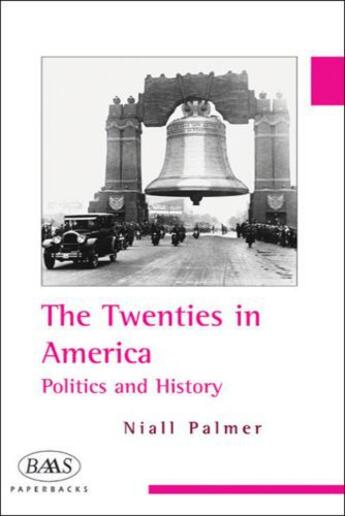-
Nombre de pages : (-)
-
Collection :
(-)
-
Genre :
(-)
-
Thème :
Non attribué
-
Prix littéraire(s) :
(-)
Résumé:
This new, revisionist approach to the Twenties in America offers the first balanced account of the history and politics of this much-maligned decade.
Focusing on the two Presidents of the 1920s, the book points out key distinctions between the governing styles and political philosophies of... Voir plus
This new, revisionist approach to the Twenties in America offers the first balanced account of the history and politics of this much-maligned decade.
Focusing on the two Presidents of the 1920s, the book points out key distinctions between the governing styles and political philosophies of Warren Harding and Calvin Coolidge. It suggests Harding's executive style and achievements were not as poor as traditional portraits have claimed. Coolidge is presented in terms of his largely successful efforts to distance himself from the financial scandals associated with his predecessor and his encouragement of the major revival of much of the US economy.
The author argues that the pace of social and technological change resulted in lines of conflict over poverty, race, religion and employment rights being redrawn as living standards rose, home and working conditions changed and old prejudices were challenged. Consequently, politicians found that old solutions became increasingly irrelevant to new realities.
The narrative is placed in the familiar context of the Twenties: the motor car, jazz, F. Scott Fitzgerald, Hollywood, mass consumerism and the flapper.
Donner votre avis














